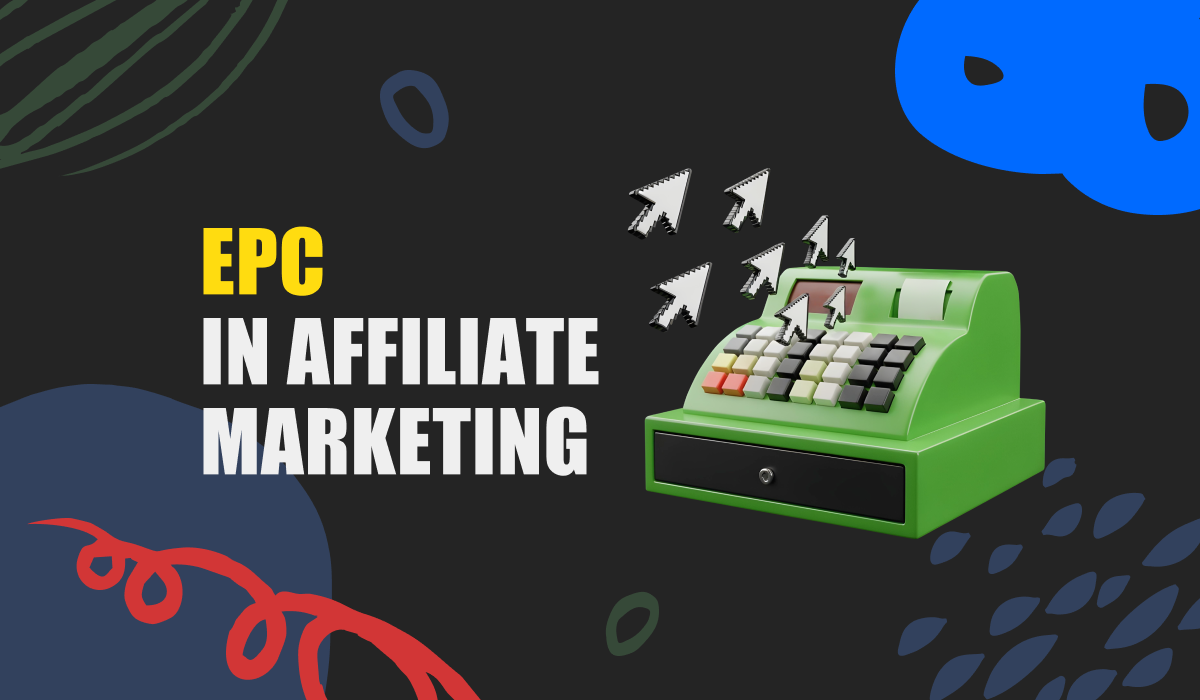Affiliate marketing is about growing your business, fine-tuning your approach, and outperforming your own past numbers. Let’s be real. You spend a lot of time and energy to grow your business. You want to drive revenue and get the best return possible. And if you’ve been exploring affiliate programs, you’ve likely heard others talking about EPC. That stands for Earnings Per Click, and it’s an important number to understand when you’re thinking about monetizing your traffic.
But what is EPC in affiliate marketing, exactly? And are EPC numbers really that important for every type of affiliate marketer? The truth is a bit more complicated. And as a lot of experienced affiliates have found out the hard way, EPC doesn’t always line up with personal revenue goals.
Today, we’re going to dig deep into EPC to help you understand what it is, how to calculate it, the benefits of EPC, strategies you can employ, and more. Whether you’re new to affiliate marketing or a seasoned pro looking for new ways to grow your business, you’ll find what we have to say about EPC extremely valuable, so buckle up.
Table Of Contents
What is EPC in Affiliate Marketing?
EPC stands for Earnings Per click. When you see an EPC number advertised on an affiliate website, you’ll have an indication of how much money an average affiliate can make for each click they send to a merchant’s website.
Some affiliate use EPC to figure out how appealing an affiliate program is. At BizzOffers, we don’t offer an EPC program because we believe there are better, more lucrative alternatives. But we also believe that an informed and educated affiliate is a successful one.
That’s why we’re going to arm you with everything you need to know about EPC programs.

How to calculate EPC
What is a good EPC in affiliate marketing? Before we get into that, let’s walk through how to calculate EPC. No matter what affiliate program you’re looking to join, you can rest assured knowing that their advertised EPC is calculated the same way:
EPC = Total Earnings / Total Clicks
Let’s look at an example. If you made $300 from 1,000 clicks, your EPC would be $0.30. Here’s why:
$300 / 1,000 clicks = $0.30 EPC
So what does this mean in plain English? For every visitor you send to a specific merchant, you’ll earn an average of $0.30.
EPC isn’t a one-off calculation. It’s usually calculated over a block of time — often daily, weekly, or monthly, depending on the program.
What’s a Good EPC in Affiliate Marketing?
When deciding on an EPC affiliate program, it’s not only important to consider the EPC numbers advertised, but also what it means.
• Poor: If you see an EPC range of less than $0.10, take it as a sign that the conversions or payouts are lower than other programs.
• Fair: EPCs in the $0.10 to $0.50 range should be considered fair. For niche products, this range is typical.
• Good: If you come across an EPC between $0.50 and $1, you can consider that offer to be quite good and well-converting.
• Excellent: An EPC with a rate above $1.50 is excellent. It’s a strong offer and the return on investment is high.

Major EPC Influencers That Every Affiliate Should Understand
Now that you understand what Is a good EPC in affiliate marketing, it’s important to take a look at the factors that can influence EPC.
Quality of traffic
Think that all traffic is the same? Not when it comes to understanding EPC. If your traffic is highly targeted or pre-qualified, you’ll probably see much better conversions. And that means a higher EPC. Win-win.
Relevance of the offer
It seems like a no-brainer, but feeding irrelevant content to your audience won’t lead to conversions. If your blog post is about lactose intolerance, an offer for a free ice cream cone probably won’t convert at all. So, make sure your offers are relevant to your audience.
Compliance and tracking
You’d be surprised by how many affiliates don’t get near the advertised affiliate EPC number because of things like broken links or non-compliant tracking pixels. If that’s you, not only will you realize a lower EPC (or a near-zero one), but you’ll lose out on serious revenue.
User experience
Slow pages or a poor, confusing user experience can lead to lower affiliate EPCs. Make sure your website works as expected, with clear calls-to-action and a smooth overall experience.
Ad format
Just because two links drive the same number of clicks, it doesn’t mean that the EPC is the same. A text link in a well-crafted blog post might feature a higher EPC than a banner advertisement. Ad formats really do matter.
EPC Strategies You Can Employ Right Now (Even With Non-EPC Affiliate Programs)
Important question. What is EPC in affiliate marketing doing for your business if you’re not in the driver’s seat? The answer? Not much. To be successful with EPC, you need to be on top of your affiliate business. Here are some EPC strategies you should be employing.
1. Create quality content to get your audience excited
Give them a reason to click that button by creating videos, blog posts, or email copy. And not just any kind of content. The kind that educates them and builds trust. If they’re sold on what you’re offering before you click, they’ll be more likely to convert.
2. A/B Test Creatives and Landing Pages
There’s nothing worse than setting it forgetting it. Spend some time to mix and match different headlines, CTAs, and graphics to see what works. Little adjustments can lead to some big EPC gains.
3. Make sure your offers match your audience
Casting a wide net isn’t the best EPC approach. It’s smarter to make sure your offers are laser focused. For example, if your audience includes moms and dads trying to lose weight, don’t offer them products related to financial health. While they might be interested, it’s better to match your products to your audience. When you do, you’ll be more likely to realize a higher EPC.
4. Don’t give up on non-converters
What is a good EPC affiliate marketing tactic every affiliate should embrace? Three words: Never Give Up. If you don’t succeed, try again. Just because your first offer didn’t lead to the conversions you had hoped for, it doesn’t mean you should walk away. Re-target those non-converters with a reminder ad, an upsell, or a secondary offer to sweeten the deal.
5. Embrace social proof When it comes to pre-selling, social proof can make a huge difference. If your audience knows that people just like them are finding success with the products you’re pitching, sealing the deal will be much easier. And that’ll lead to a higher EPC.

Popular EPCs Across Various Networks
If you’ve been exploring EPC affiliate programs, you’ve probably come across some of the big ones. While no two EPCs are alike, it’s always a good idea to understand what some of the big programs are offering. Here’s a quick snapshot.
Amazon Associates
EPC of $0.05 to $0.30
ClickBank
EPC of $0.50 to $3+
Rakuten
EPC of $0.30 to $1.50
The Biggest EPC Misconceptions
Now that you understand what is a good EPC in affiliate marketing, it’s time to understand that there are a lot of myths about EPC. Here are the top ones.
1. A high EPC means that you’ll make loads of money
This is probably one of the biggest misconceptions. Affiliates often assume that a high EPC means more revenue. But the truth is that if an offer comes with a high EPC but there isn’t a lot of volume on the horizon, the revenue will drip in slowly. And on the flipside, an EPC with a lower rate but with more conversions could lead to greater revenue.
2. High EPC programs are better than high conversion rate offers
Not necessarily. If you’re taking advantage of a high EPC offer, you might find that it converts at a lower rate, while a lower EPC with a higher conversion rate leads to long-term value and more trust from your audience.
3. EPC is the same for every affiliate
This can’t be said enough. EPCs don’t tell you how much you will earn. It doesn’t even tell you how much you can earn in definite terms. It’s simply an average across an affiliate network. Your earnings will vary based on what you’re promoting, the volume of traffic, and how you approach your marketing.
Final Thoughts About EPC
Is EPC a useful tool? Absolutely. If you’re an affiliate exploring programs that can help you grow your revenue, understanding EPC can give you a good idea of a program’s performance. And when you’re comparing two EPC programs, seeing how their EPC numbers stack up against each other is helpful.
But EPC doesn’t give you the whole picture. In fact, it’s not always a surefire way to measure potential income. That’s because it doesn’t take into consideration several important factors, especially the lifetime value of each customer.
At BizzOffers, we build our offers with long-term growth in mind instead of just high-click payouts.
If you’re looking for a new affiliate program to help you grow your income or just exploring new paths to profits, get in touch with us. We’re the affiliate program of record for several products in growing segments. And we offer several ways to profit outside of EPC.
Ready to explore? Get in touch with an Affiliate Manager and let’s talk about doing business together.



